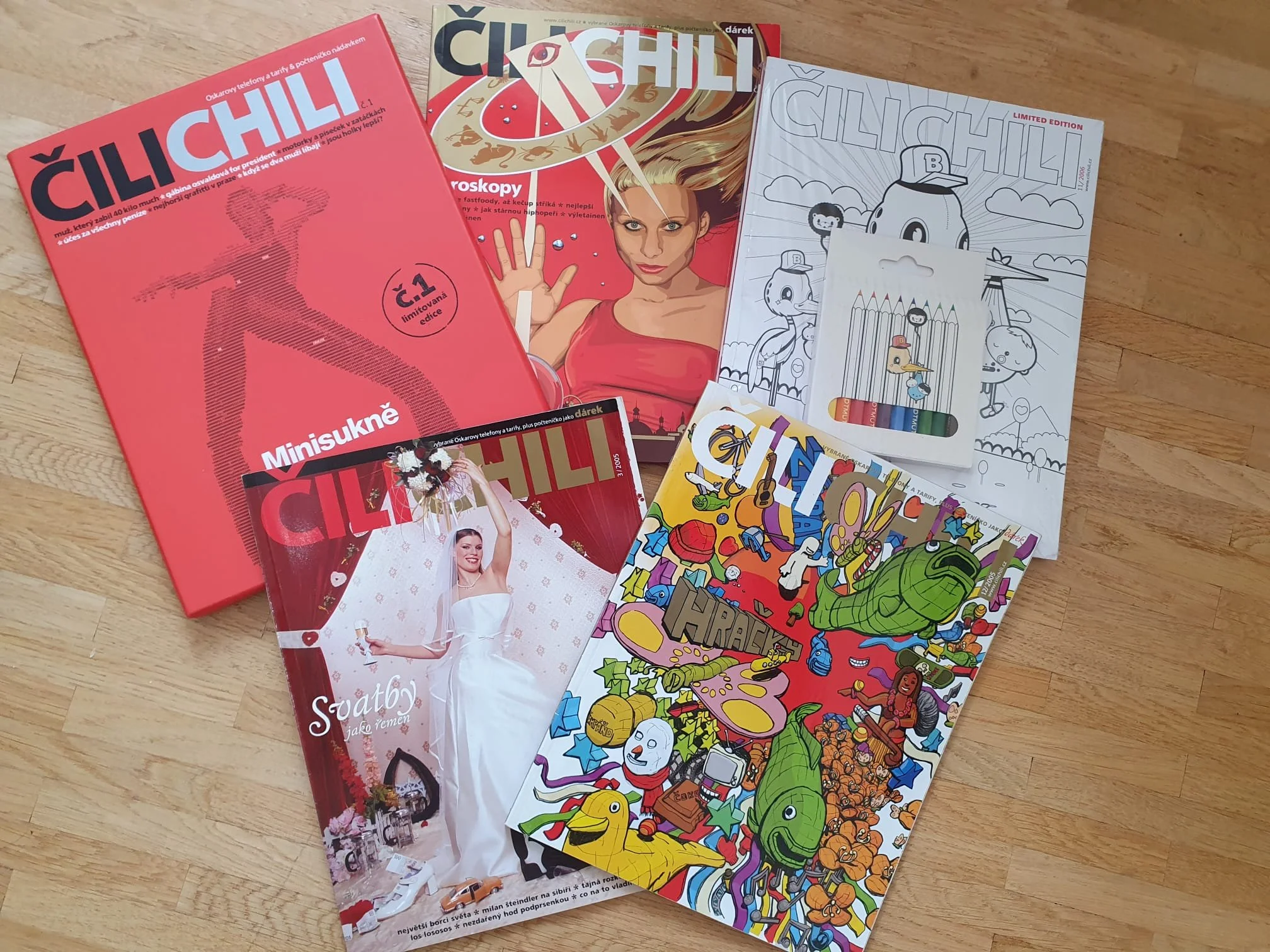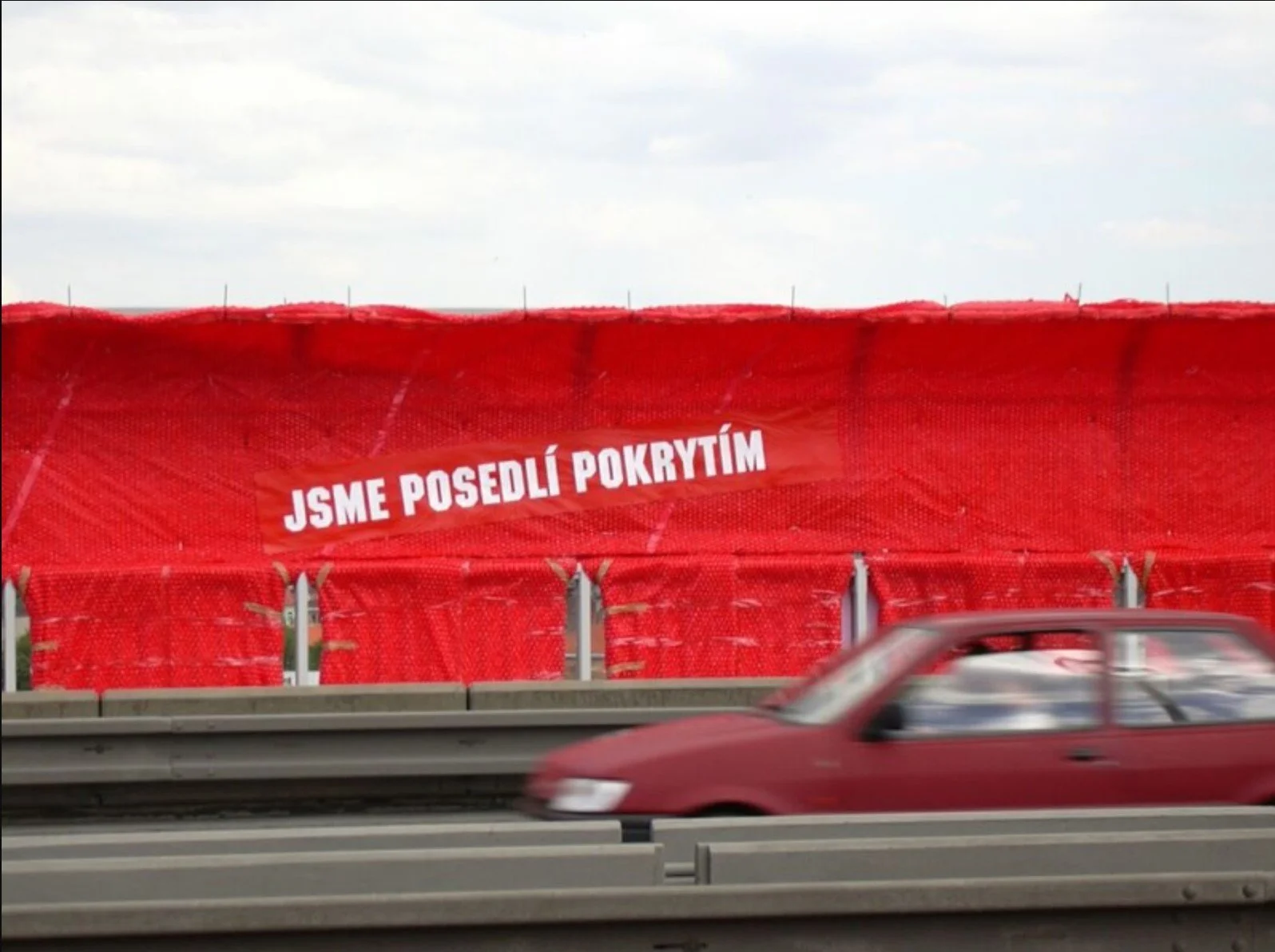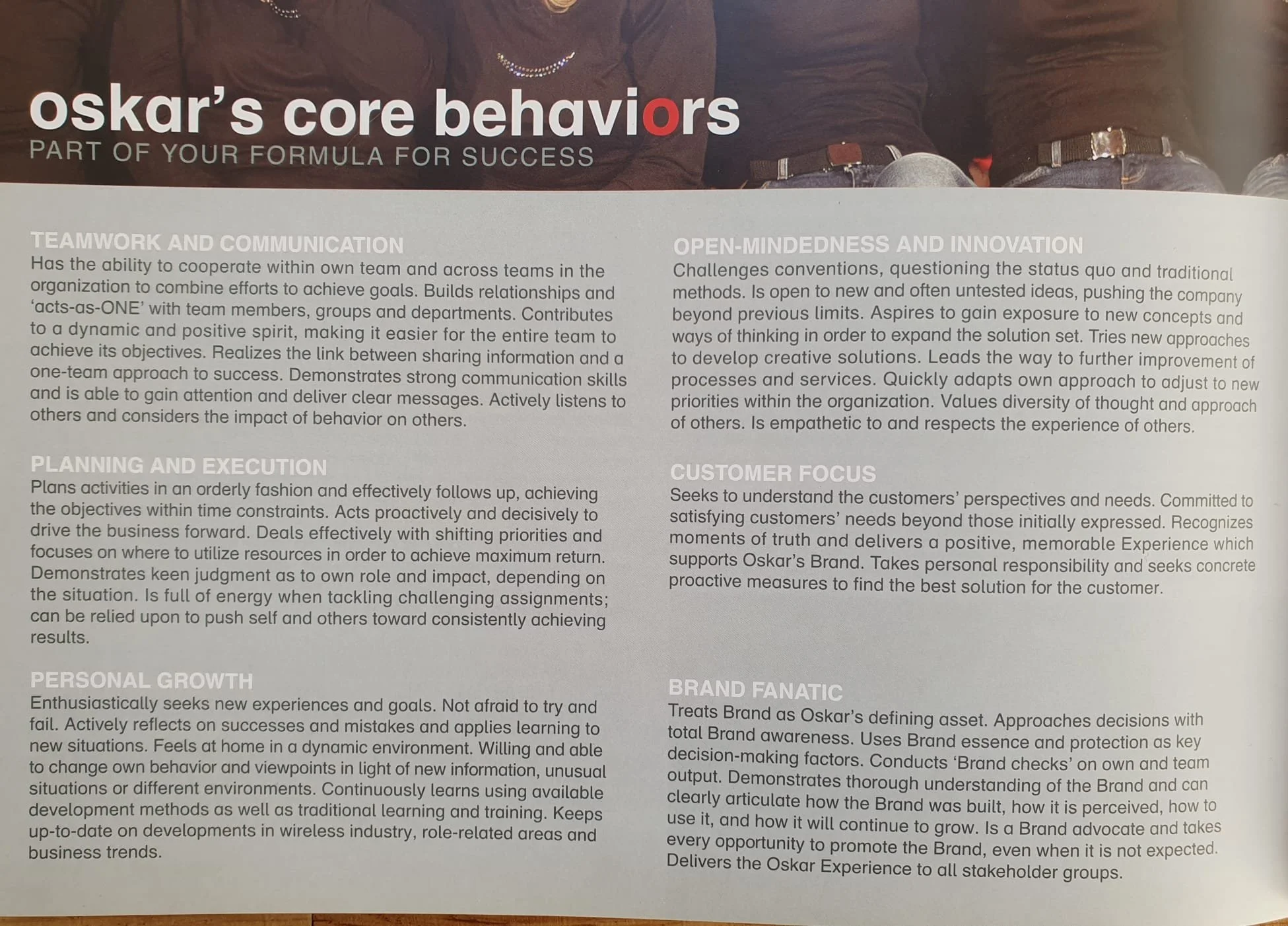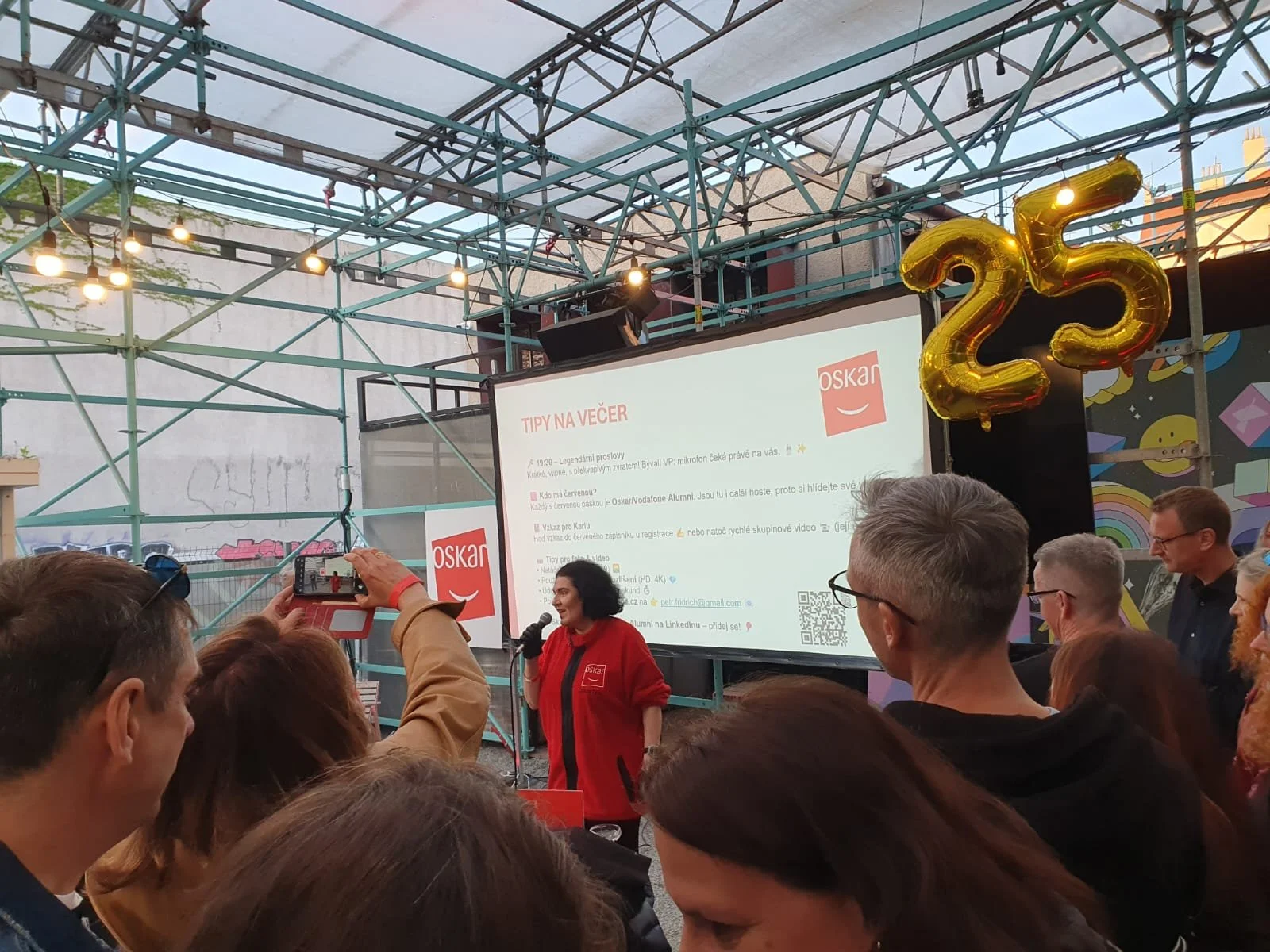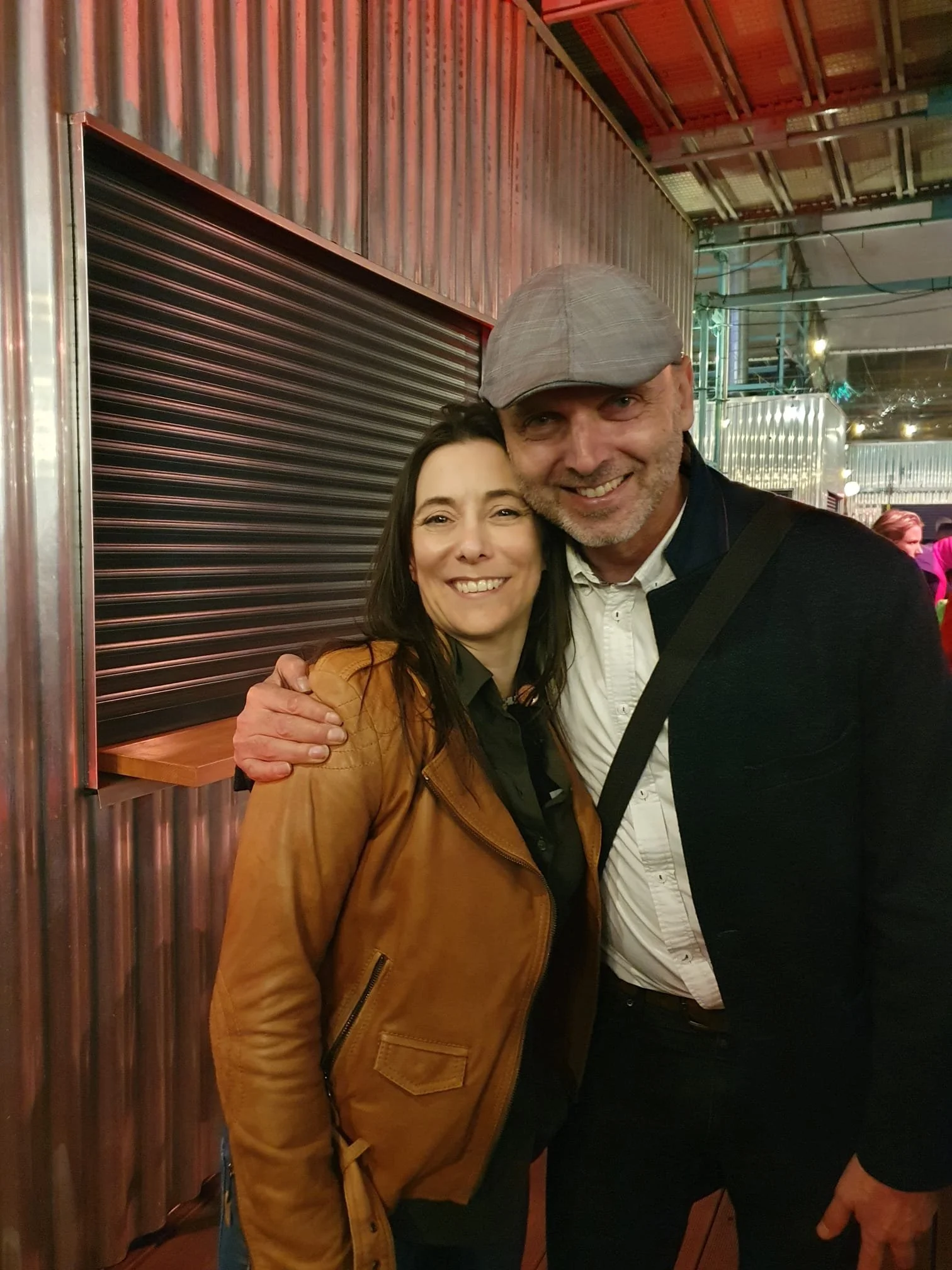Building the best culture - and why it matters
Once upon a time, a long time ago, in the heart of Central Europe a little challenger brand vowed to do things differently and shake up the telecommunications market.
In 2002 a Czech friend contacted me to interview for Oskar mobil - and with the most fortuitous timing. Just a week previously I’d thought about making the move from journalism to copywriting. Thanks universe.
A few weeks later I packed my little suitcase of hopes and dreams, along with a few mix CD's, and flew into a recently flooded city for my first ever corporate copywriting job.
What I saw at Oskar formed my expectations of what a company should be, and to this day I believe companies could benefit from their approach.
Relentless creativity and attention to detail
My very first interaction with Oskar was surprisingly different. I was asked to write a pre-interview test piece. I expected to type a few paragraphs on the benefits of a Nokia 3410. Instead I was asked to pen an essay using the prompt: ‘if an alien came to earth, how would you describe the purpose of human feet?’. I took a gamble and wrote the first thing that came into my head, something very me: ‘so we can wear fabulous shoes of course!’ It paid off. Karla Stephens-Tolstoy the CEO, as luck had it, was the proud owner of many fabulous shoes.
I expected this job to be a little different. But I wasn’t prepared for exactly how different. My only previous brush with company ‘culture’ was the impressive collection of mould I once found in the bottom of my editor’s unwashed coffee cups.
From the moment I landed on planet Oskar I was schooled in the 'why' and 'how' of its goals. Every single detail mattered. We were expected to provide an experience that made all stakeholders feel respected, inspired and captivated. And this was taken VERY seriously. From the 404 error messages, to the annual reports and (later) the onboarding experience. Every single interaction point demanded a touch of magic.
One of many award winning annual reports (2004)
The retail was meticulously planned and tested, drawing on all the latest cognitive science. The brand team experimented with music, scents, and layouts to see exactly what increased footfall and how the browsing experience could be made more enjoyable. One successful endeavour was CILICHILI, a free lifestyle magazine, created by our team. It just happened to have a product catalogue at the back (in case you were interested). It soon became one of the most read magazines in the Czech Republic and tens of thousands of people would regularly detour into our stores to pick up a copy. For us, providing a fun and positive experience mattered more than trying to hard sell our tariffs. And yes, it's holding on to stuff like this which makes moving apartments such a chore.
Our wildly successful lifestyle magazine (with a bit of product)
The advertising was legendary. The campaign where we paraded dogs around the city centre in branded jackets? Wrapping a half kilometre highway bridge in branded foil overnight? I wince at the use of plastic now - it was a different time.
Drivers woke up one morning to see that we were ‘obsessed with coverage’
If a single sign in the office toilet or kitchen was boring, it was taken down and recreated. This relentless dedication to the tiniest detail meant that we were constantly looking for ways to be innovative in every single task we did. It was hard baked into the culture. Nothing escaped. We even had branded fondue sets. You might not consider a cheese bowl a culture driver, but I promise you I smiled for the next 15 years everytime I found a mad piece of merchandise in the back of a cupboard.
Living the values and being brave
We had a policy: if you saw anything which did not live up to our core values - you called it out. Complaining in corridors was frowned upon, honest feedback was encouraged. This once led to a high budget Christmas campaign being redesigned just weeks before launch. Our mission was to provide the best experience for all stakeholders. I believe the TV ads had already been filmed when someone pointed out that the campaign was not in the customer's best interests. Like most Christmas campaigns it offered huge discounts to attract new business - not very fair to our existing customers - why shouldn't they get a discount too? That Christmas, loyalty was rewarded with free SMS bundles (back when you had to pay to text). The resulting campaign featuring dogs as reindeer was so successful that it was reported to have led to a shortage of chihuahuas in the Czech Republic and sadly an increase in dog thefts. While this may have been a Vodafone campaign just after the transition, it was still firmly rooted in Oskar values.
Of course our customer care was not only the best in the country, Vodafone’s internal benchmarking reported that Oskar’s customer care KPI’s were the best in their global portfolio at the time of acquisition.
Constant feedback loops
The brand department didn’t just imagine a few target consumer personas. They went into hundreds of peoples homes all over the country and conducted in depth interviews. They noted everything from the CD’s, books and ornaments they had on their shelves and probed them on their hopes, dreams, and aspirations. Apparently they delved so deeply into people’s psychological needs and barriers to success that it wasn’t unusual for those being interviewed to break down in tears. Although we were a cheeky light-hearted brand, the research behind our customer interactions was deeply serious.
The rule at Oskar was ‘never assume to know’ - we were constantly curious both inside and outside the company. Behind the smile logo were some really innovative methods and practices. Looking back, it was my first experience of a data driven learning culture where assumptions were constantly tested.
Celebrating the mountain we scaled to achieve the best website ratings in EBiz 2004
Company culture surveys are not unusual now - back then they were. Oskar published reports on the findings (good and bad) and was not afraid of openly sharing negative feedback. It was important to be honest and transparent. After the survey we received detailed plans of how employee issues would be addressed. The leadership held themselves accountable against a timeline, giving regular updates and reports on their improvement progress. I've yet to see that in another company to this day. We were free to speak up, and we knew our feedback would be considered.
The work of Amy Edmondson at Harvard shows that psychologically safe teams built on trust are more willing to speak up, share critical information, and learn from each other. This leads to better problem-solving, higher creativity, and faster adaptation to change. Intuitively, Oskar already operated on that premise.
Just last week I heard of a team in a large organization that discovered their anonymous culture surveys were not really anonymous - after being berated by the CEO for their honest feedback. So now they don't give feedback. They just show up, keep their heads down, and collect compensation for the trauma of working there. However, in my experience it's more common that feedback simply disappears into a black hole and is never spoken of again. For organizations this is a missed opportunity to build trust and demonstrate to employees that their voice matters. Amazing things happen when people feel heard. Don't underestimate it.
Culture
As a young company with an average employee age of 26, it was a vibrant and inclusive place to work.
Decades ago Oskar talked about the importance of empathy, acknowledging individuality, and self awareness - outlined in the Oskar Dictionary. We embraced Diversity, Equity, and Inclusion (DEI) before it was even an acronym. Looking through the brand book today, I see that Oskar asked me to consider the principles of interpersonal and systems awareness before I even knew what it was.
The brand dictionary
I can't write about Oskar without mentioning the famous internal and team building events - still talked about today. So much planning, creativity, and fun. Sure a fancy party is nice, but it was yet another signal that we mattered and that our work was worthy of recognition.
Providing spaces to have fun and learn meant we bonded better as teams and formed lifelong friendships (even marriages and companies). I think most of us were proud to be ‘Oskaraci’. A common phrase at this weekend's reunion was ‘it was the best job I ever had’.
Oskar taught me that ‘culture’ is driven from the top down and the bottom up. It shapes how people behave, interact, and perform, more powerfully than formal rules or structures. It’s the secret sauce and invisible engine behind decision-making, teamwork, and customer service. Managers of all levels were trained on how to set the tone which influenced trust, motivation, and resilience. What made the culture so successful were the signals that were consistently sent by managers and leaders. It was lived throughout every aspect of decision making.
Oskar sets the tone for behaviour in its 180 page brand book
The golden era came to an end in 2005/6 when Vodafone bought Oskar. It was a great opportunity to be involved in change communications and the rebrand. Then, after a stint at Vodafone Turkey, I left telco.
This weekend’s anniversary party reminded me of what a special brand Oskar was - though it took me years to understand exactly why.
Healthy cultures are vital in enabling adaptability and innovation. However, ensuring that values and purpose are more than words on a website isn't easy, it doesn't happen by decree. It takes consistent effort, attention, and sometimes bravery. Leaders need a learning mindset, awareness, and the ability to mobilize action. Most of all - they need to actually care in the first place.
300+ people come from all over the world to say hi - 20 years after the company ceased to exist
Someone once commented that Oskar was almost ‘cult like’. Maybe. But I believe the obsessive dedication to brand and culture paid off. Think of it this way: what would you like your team to say at your 25th anniversary party? Will they be laughing along at the memories and saying it was the best place they ever worked? We were.
My old pal Tomas dropped in from Luxembourg
So what now? I recently had a learning and development role at Novartis during a culture transformation, which was guided by some of the world’s leading experts in adult development and cognitive science. Many of the same experts have also worked on the Inner Development Goals framework. All of it felt strangely familiar... it sparked something.
I knew I needed to be in a role that focused on the values of respect, trust, compassion, and good leadership. So I'm happy to be working with a collective of culture, leadership, and adaptive skills experts again as we create our new venture, Reimagined Value. It aims to equip organizations with the tools and methods needed to make positive systemic impact - many principles of which were already being taught at a tiny little telco in the heart of central Europe over two decades ago.
These days we talk about inner development for outer change. In the early 2000's in the Vinice office building, we simply used to say: ‘It’s in you’. Somehow 'it' still is.
A rare 1999 vintage, saved for the event


